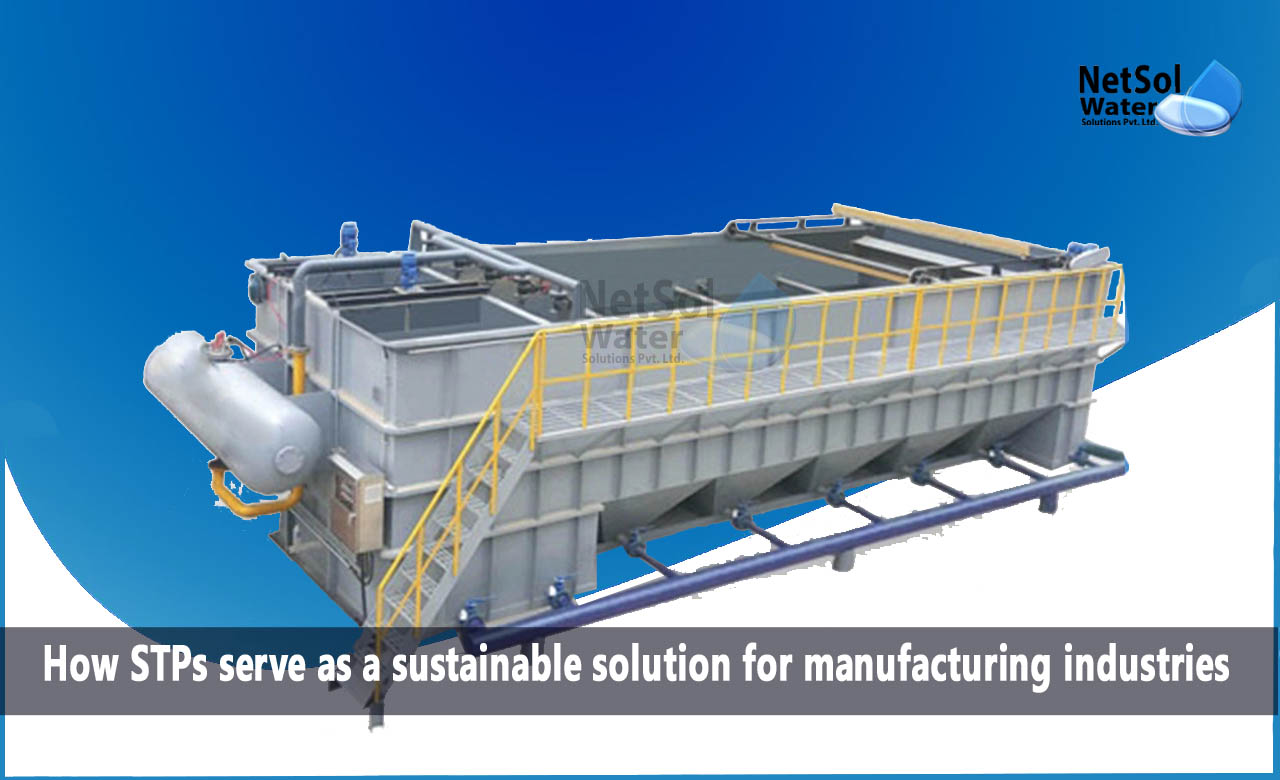How STPs serve as a sustainable solution for manufacturing industries?
In an era where sustainability is at the forefront of business practices, manufacturing industries are actively seeking sustainable solutions to reduce their environmental impact. One such solution that has gained significant attention is the implementation of sewage treatment plants (STPs). Sewage treatment plants offer manufacturing industries an opportunity to effectively manage their wastewater, minimize pollution risks, and contribute to a more sustainable future.
In this blog, we will explore how STPs serve as a sustainable solution for manufacturing industries, providing numerous benefits for both the environment and businesses.
Efficient Wastewate?r Treatment
One of the primary advantages of sewage treatment plants is their ability to efficiently treat wastewater generated by manufacturing processes. Traditional wastewater treatment methods are often inadequate in removing harmful pollutants and contaminants, leading to adverse environmental effects. STPs employ advanced treatment technologies that effectively remove pollutants, chemicals, and toxins from wastewater, ensuring compliance with stringent environmental regulations. By treating wastewater to high standards, manufacturing industries significantly reduce their ecological footprint and prevent pollution of natural water bodies.
Resource Conservation and Reuse
Sewage treatment plants facilitate resource conservation and reuse by extracting valuable resources from wastewater. Water is a finite resource, and as manufacturing processes require substantial amounts of water, conserving and reusing water is crucial for sustainable operations. STPs treat wastewater to a level where it can be safely reused within manufacturing processes, reducing the reliance on freshwater sources. Reclaimed water can be utilized for various non-potable purposes such as cooling, cleaning, or irrigation, contributing to water conservation efforts. Additionally, STPs can recover nutrients and organic matter from wastewater, which can be repurposed as fertilizers or energy sources, further enhancing resource efficiency.
Energy Gen?eration and Cost Savings
Sewage treatment plants can be designed to harness the energy potential of wastewater. Through processes like anaerobic digestion, biogas is produced as a byproduct, which can be utilized as a renewable energy source within the manufacturing facility. This energy generation helps reduce reliance on fossil fuels, thereby reducing greenhouse gas emissions and combating climate change. Moreover, by generating their own energy on-site, manufacturing industries can significantly reduce energy costs and improve their overall financial performance.
Compliance with Environmental Regulations
Manufacturing industries operate in a highly regulated environment, with strict environmental regulations governing wastewater management and discharge. Non-compliance with these regulations can result in significant penalties, legal consequences, and damage to the company's reputation. Implementing an STP ensures that wastewater is treated in accordance with environmental standards, enabling businesses to meet regulatory requirements. By being proactive in sustainable wastewater management, manufacturing industries can maintain compliance, minimize risks, and safeguard their reputation as environmentally responsible organizations.
Enhanced Corporate Social Responsibility (CSR)
Sewage treatment plants play a crucial role in enhancing a company's corporate social responsibility (CSR) profile. With increasing consumer awareness and demand for sustainable practices, manufacturing industries that invest in STPs showcase their commitment to environmental protection. Such initiatives help build trust and loyalty among environmentally conscious consumers. Moreover, by promoting sustainable wastewater management practices, manufacturing industries contribute to the overall well-being of communities and ecosystems, further strengthening their CSR efforts.
Conclusion
Sewage treatment plants have become a sustainable solution for manufacturing industries, enabling them to effectively manage wastewater, conserve resources, and reduce their environmental impact. By implementing STPs, manufacturers can efficiently treat wastewater, conserve water resources, generate renewable energy, comply with environmental regulations, and enhance their corporate social responsibility. Investing in sustainable wastewater management is not only an ethical choice but also a strategic decision that leads to long-term operational efficiency, cost savings, and a positive brand image. Sewage treatment plants empower manufacturing industries to embrace sustainability and become champions of environmental stewardship.
Netsol Water is Greater Noida-based leading water & wastewater treatment plant manufacturer. We are industry's most demanding company based on client review and work quality. We are known as best commercial RO plant manufacturers, industrial RO plant manufacturer, sewage treatment plant manufacturer, Water Softener Plant Manufacturers and effluent treatment plant manufacturers. Apart from this 24x7 customer support is our USP. Call on +91-9650608473, or write us at enquiry@netsolwater.com for any support, inquiry or product-purchase related query.



